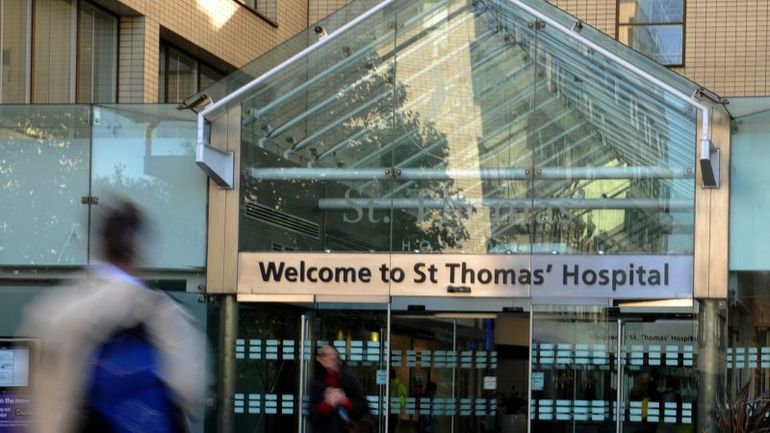
Cyberattack Causes Disruption in Patient Care at Hospitals in London

Hospitals in London, including King’s College Hospital, Guy’s and St Thomas’, and primary care providers, face operational disruptions due to a cyberattack impacting healthcare services, as reported by the NHS.
Several major hospitals in London, including King’s College Hospital, Guy’s and St Thomas’, have had to cancel operations, blood tests, and appointments due to a cyberattack on a contractor to England’s National Health Service. Patients are being redirected to other facilities. The attack has also impacted many primary care providers in the UK capital, as confirmed by a spokesperson for the NHS on Tuesday.
Several hospitals and providers that work with Synnovis, a company that offers lab services to the NHS, have been impacted. On Tuesday, the company revealed that they fell victim to a ransomware attack, causing disruptions to all their IT systems. This has led to interruptions in many of their pathology services.
The services that have been most affected by this cyber attack are those related to blood tests and transfusions.
Oliver Dowson, 70, had been scheduled for an operation at the Royal Brompton hospital, a specialist heart and lung center managed by Guy’s and St Thomas’, starting at 6 a.m. on June 3. However, he was informed by a surgeon around 12:30 p.m. that the operation would not be taking place, as reported by the PA news agency.
He expressed that the ward staff seemed unaware of the situation, only knowing that many patients, including himself, were being instructed to go home and await a new date for their procedures.
Vanessa Welham, who lives in Streatham, southwest London, shared that her husband's blood test appointment at Gracefield Gardens health centre was cancelled on Monday evening. He was then told that local centers were not taking bookings for an "indefinite period of time."
The NHS mentioned that the cyber attack was causing "a significant impact on the delivery of services" at hospitals in London. However, they reassured that emergency care is still accessible.
The NHS spokesperson apologized “for the inconvenience this is causing to patients and their families.”
dikushin/iStockphoto/Getty Images
Related article
Nurses are expressing concern that a ransomware attack is causing stress on hospital operations, putting patients' lives at risk. The spokesperson mentioned that they are working with the National Cyber Security Centre and their Cyber Operations team to assess the impact of the incident.
Ransomware attacks usually happen when hackers use harmful software, called malware, to prevent access to a server until a ransom is given. According to experts, these types of attacks on the UK health system are not very common.
Ciaran Martin, who used to lead the UK government’s National Cyber Security Centre, mentioned to CNN that compared to the United States, the UK healthcare services have experienced less disturbance from ransomware attacks.
Martin pointed out that a large portion of British healthcare is operated by the government, which means they do not pay for services. However, he also highlighted that the recent cyber attack targeting a private supplier to the NHS demonstrates that the threat of healthcare disruption due to cybercrime is a reality even in the UK.
Martin expressed concern about the seriousness of the incident and its potential impact on patient care.
Synnovis CEO, Mark Dollar, apologized for the inconvenience and distress caused to patients, service users, and others affected. The company is working to minimize the impact and will continue to update local NHS services on the situation.
Editor's P/S:
The cyberattack on Synnovis, a contractor to the NHS, has exposed the vulnerability of the UK's healthcare system to cybercrime. While ransomware attacks are not uncommon in the United States, they are less prevalent in the UK due to the government's ownership of a large portion of the healthcare sector. However, this incident highlights the growing threat of cybercrime even in countries with strong cybersecurity measures.
The impact of the attack on patients and healthcare providers has been significant, with operations, blood tests, and appointments being canceled. While emergency care remains accessible, the disruption to non-emergency services has caused inconvenience and distress. The NHS is working to assess the impact of the incident and minimize its effects, but it is clear that cyberattacks pose a serious threat to the delivery of healthcare services.






